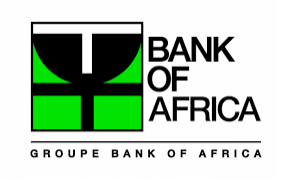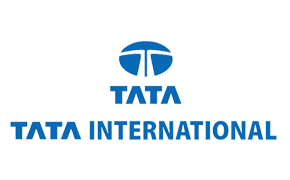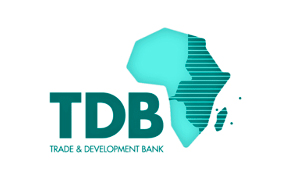 The International Chamber of Commerce (ICC) has prepared a guidance paper on the impact of Covid-19 on trade finance transactions subject to ICC rules, which may be useful in helping us determine how global supply chains are affected by the pandemic, inevitably affecting our businesses and their processes as well. Due to the technical form of writing adopted by this paper, we have decided to summarize it for you, so you can understand the gist of it without having to expend too much effort on the reading.
The International Chamber of Commerce (ICC) has prepared a guidance paper on the impact of Covid-19 on trade finance transactions subject to ICC rules, which may be useful in helping us determine how global supply chains are affected by the pandemic, inevitably affecting our businesses and their processes as well. Due to the technical form of writing adopted by this paper, we have decided to summarize it for you, so you can understand the gist of it without having to expend too much effort on the reading.
The guidance paper tries to shed light on the effect of Covid-19 on trade finance, as banks in several countries have started to ask whether the virus may be considered to be an interruption of their business or an event that is beyond their control, therefore leading to the validity and execution of a Force Majeure. The wider and general concept of “Force Majeure” means the occurrence of an event or circumstance (“Force Majeure Event”) that prevents or impedes a party from performing one or more of its contractual obligations under a contract, if and to the extent that the party affected by the impediment (“the Affected Party”) proves:
- that such impediment is beyond its reasonable control
- that it could not reasonably have been foreseen at the time of the conclusion of the contract
- that the effects of the impediment could not reasonably have been avoided or overcome by the Affected Party.
Although the paper goes into heavy detail about the separate ICC rules which cover and describe “Force Majeure” events, we would prefer to keep things simple and summarize these events as: Acts of God, riots, civil commotions, insurrections, wars, acts of terrorism, cyberattacks, lockouts and failures of equipment, software or communication networks beyond the banks’ control. These are usually the key events which prevent banks from completing their contractual obligations, and there is much deliberation throughout the paper on whether Covid-19 would fall under any of these categories, but there is no conclusion to this matter.
Instead, the paper steers away from the issue of whether a “Force Majeure” has actually occurred and chooses to describe (in excruciating detail) the many situations in which contractual obligations may be breached and the parties responsible (and punishable) for those breaches. The situations described encompass various parties such as (but no limited to) nominating/confirming/issuing banks, buyers, sellers, insurers, couriers and logistics providers, and all of the situations described are centred around the responsibility of the preparation, collection, delivery and approval of physical documents such as Bank Guarantees, Letters of credit, Bills of Lading and many more.
The paper also chooses to use the volcanic eruption in Iceland in 2010 as a reference point for the first era of technological improvement in trade finance documentation, taking reliance away from just physical (hard copy) documents and placing greater importance on electronic documents. The reading then describes Covid-19 as an enabler for the next era of technological improvement to trade finance documentation: the shift from electronic documents to digitised documents. A clear distinction has been made between electronic and digitised documents in this reading:
- Electronic document: An original (physical) document which also has an electronic copy (e.g. A scanned copy)
- Digitised document: A document and/or record which is created, stored and exits in digital form only
The reading also stresses that an understanding of the above is critical in the preparation of robust and effective Business Continuity Plans (BCPs) for banks, especially in the event of a “Force Majeure”. To put it simply, effective BCPs are key to the functioning of society during such events, as life MUST go on. Although the majority of the paper stresses heavily on the parties responsible in the non-completion of contractual obligations in trade finance, it can be inferred that Covid-19 has created high levels of uncertainty for trade finance transactions internationally, so much so that the ICC itself has placed the responsibility of determining whether a “Force Majeure” has taken place on the shoulders of local jurisdictions, and has failed to come to a conclusive decision.
What this means for the employees, partners, stakeholders and clients of #dltledgers:
With the emergence of Covid-19, we have seen the catastrophic effects of heavily relying on physical documents on trade finance and global supply chains. Goods across multiple global industries have been held up mid-transit simply due to delays in the preparation, collection, delivery and approval of physical trade finance documents, and it is becoming increasingly harder to pin-point the parties responsible due to the complexity of global trade transactions today.
As global markets and trade flows start to recover after taking a devastating blow from the pandemic, it is easy to tell that digitised documents (as described above) will no longer be a precautionary measure, but rather become the status quo. For us at #dltledgers, this represents a step (or perhaps a giant leap) in the right direction, with a platform that aims to achieve end-to-end trade digitisation while exposing all counterparties to a single source of truth.
For those of you who are interested to read the paper as well, you may find the link below this summary for your referral. I hope the above has been useful for you in understanding/strengthening the importance of what our company does. Stay safe, and have a wonderful week ahead!
ICC Reading: http://files-eu.clickdimensions.com/iccwboorg-avxn…
















